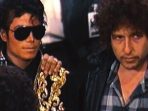Her bio became a biopic 30 years ago, and even before then the details of her life had been common knowledge: born Anna Mae Bullock in poverty in the Jim Crow South to a couple in a loveless and abusive marriage, abandoned by both parents before adolescence. In an East St. Louis nightclub, she met an R&B singer of some note who did something few people had ever done in regards to Bullock: he saw her star potential.
He molded her, remade her to the specifications of his gaze and desires and rechristened her Tina Turner. She brought him to a level of stardom he’d never known and used horrific abuse of all kinds to ensure that this success, of which he knew she was the true author, would remain his to control. But she declared her independence, fatefully during the Bicentennial celebration of the nation. She walked away with nothing but her name and her talent and the knowledge of who she was and that was enough for Tina Turner to conquer the world on her own.
It would not be easy. She set her sights on the world of rock in the disco era, an arena far from welcoming to Black women, especially Black women who had their eye on a throne.
I was almost shocked to realize the paucity of her film work. First, there was her show-stopping turn in Ken Russell’s film of The Who’s “Tommy” as the Acid Queen. Whoever approaches this role from now on will have to find a way to interpret it that isn’t in the shadow of Turner, which is no mean feat. She fearlessly embodies this Dionysian pagan goddess with the same ferocity that had brought her to stardom. Sensual, seductive, thunderous.
Recently I have seen two new biographical documentaries about iconic African-American singers who liberated their listeners even as they themselves struggled to be free of the guilt and shame a churchgoing childhood had instilled in them about the licentiousness of their artistic personas. In many ways, Black-American performers are forged in this crucible of the sacred and the profane, and have to find a way to reconcile the two impulses in their art. If Tina Turner struggled with this she kept it to herself. But by all appearances she did not suffer from this torment that comes when faith and art clash. It should be noted that like nearly all of her generation, Turner began singing in the Black Church, but she left it behind early; Buddhism, not Christianity, was the faith that she turned to to claim the strength necessary to leave her first husband and save her life.
Sumber: www.rogerebert.com
 Skip to content
Skip to content








